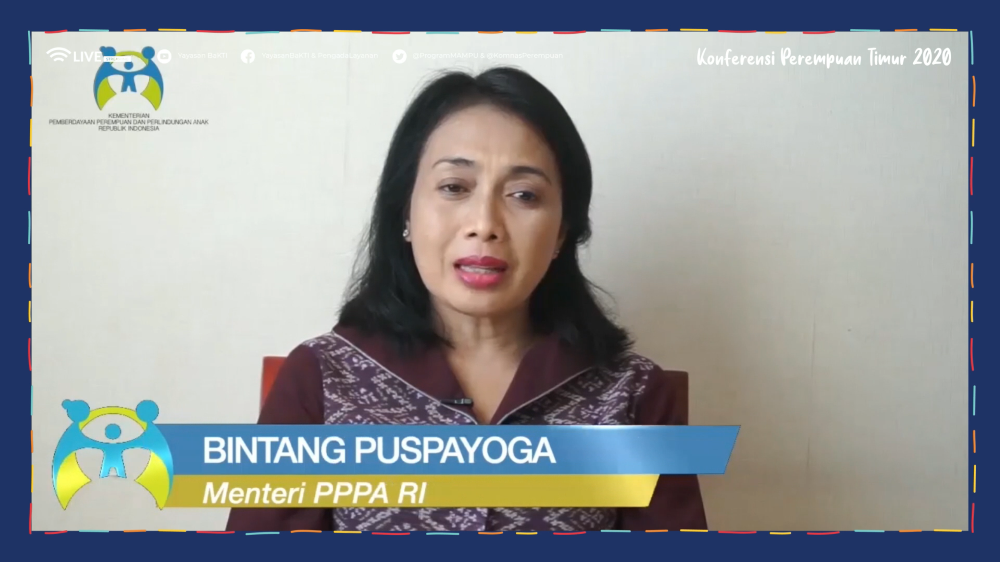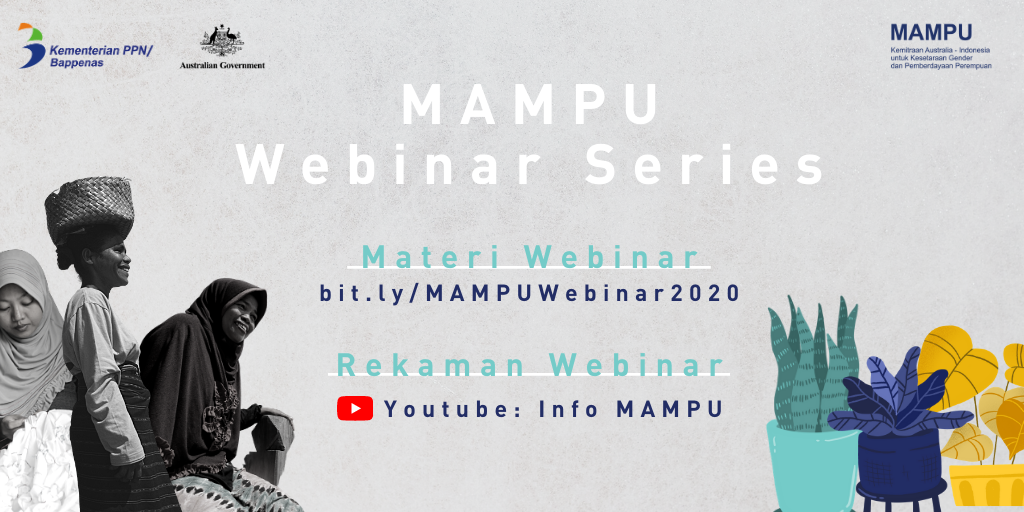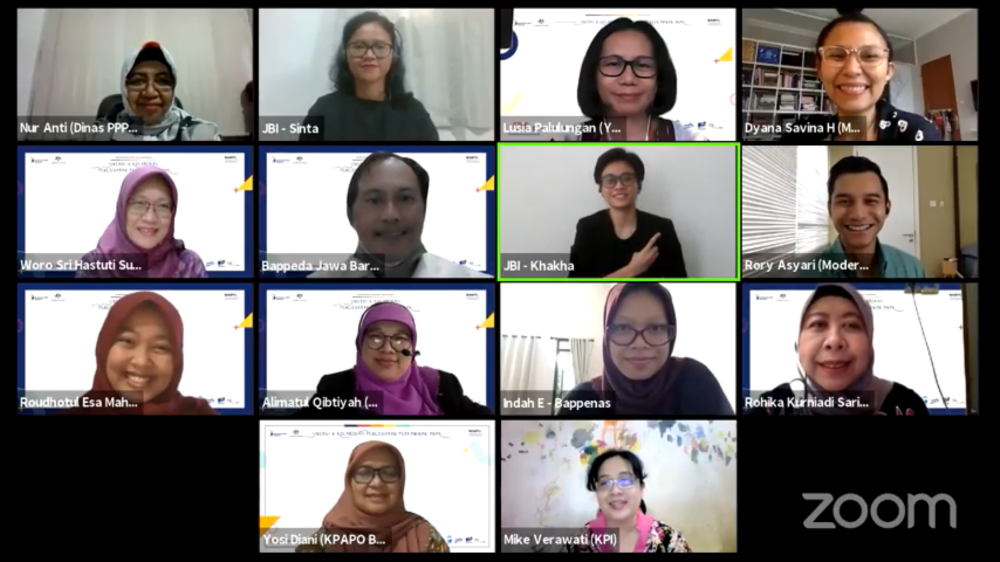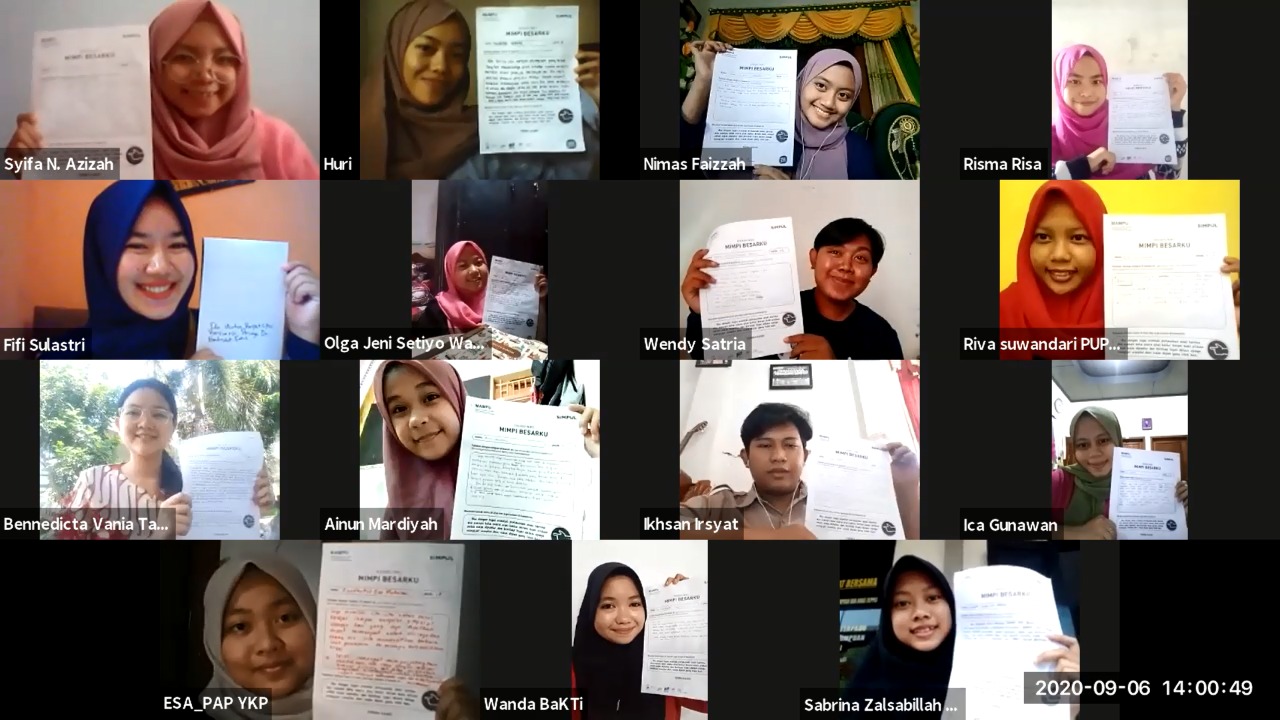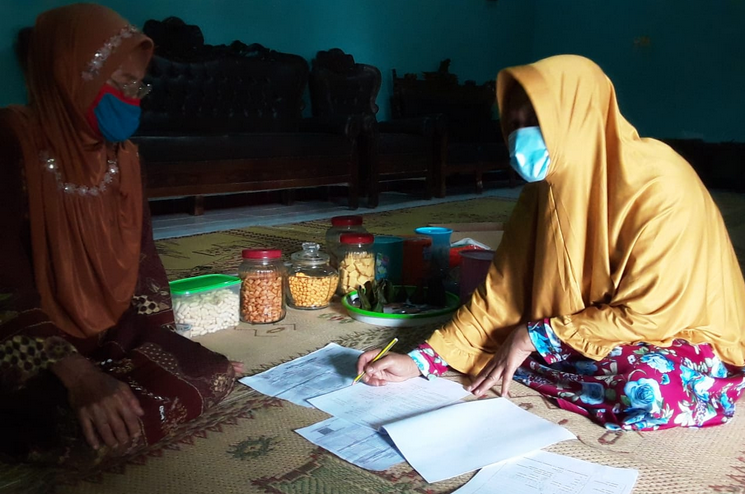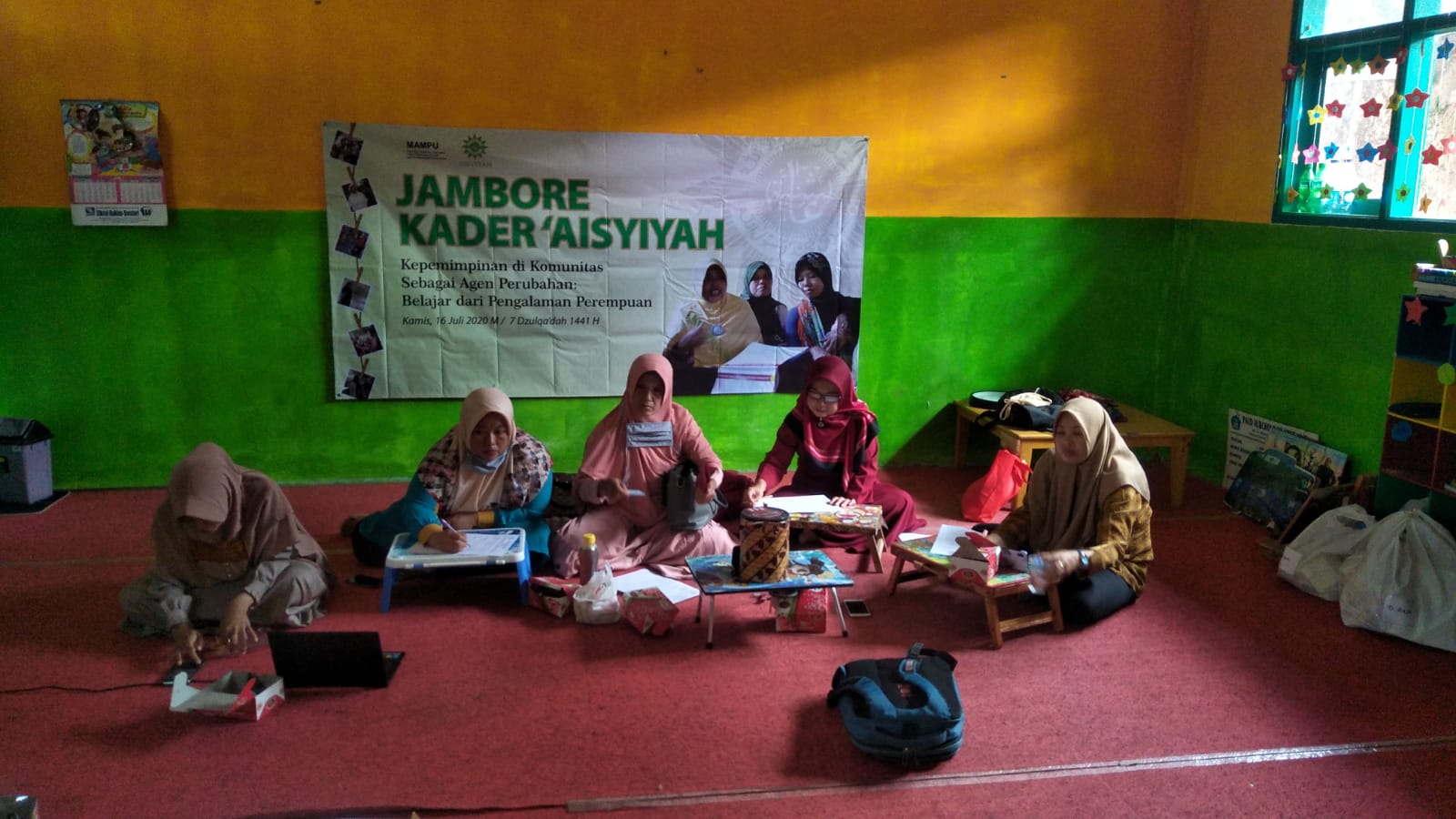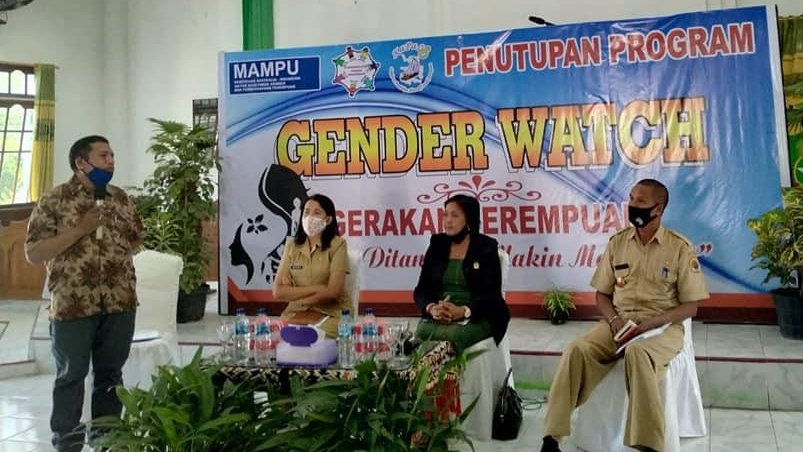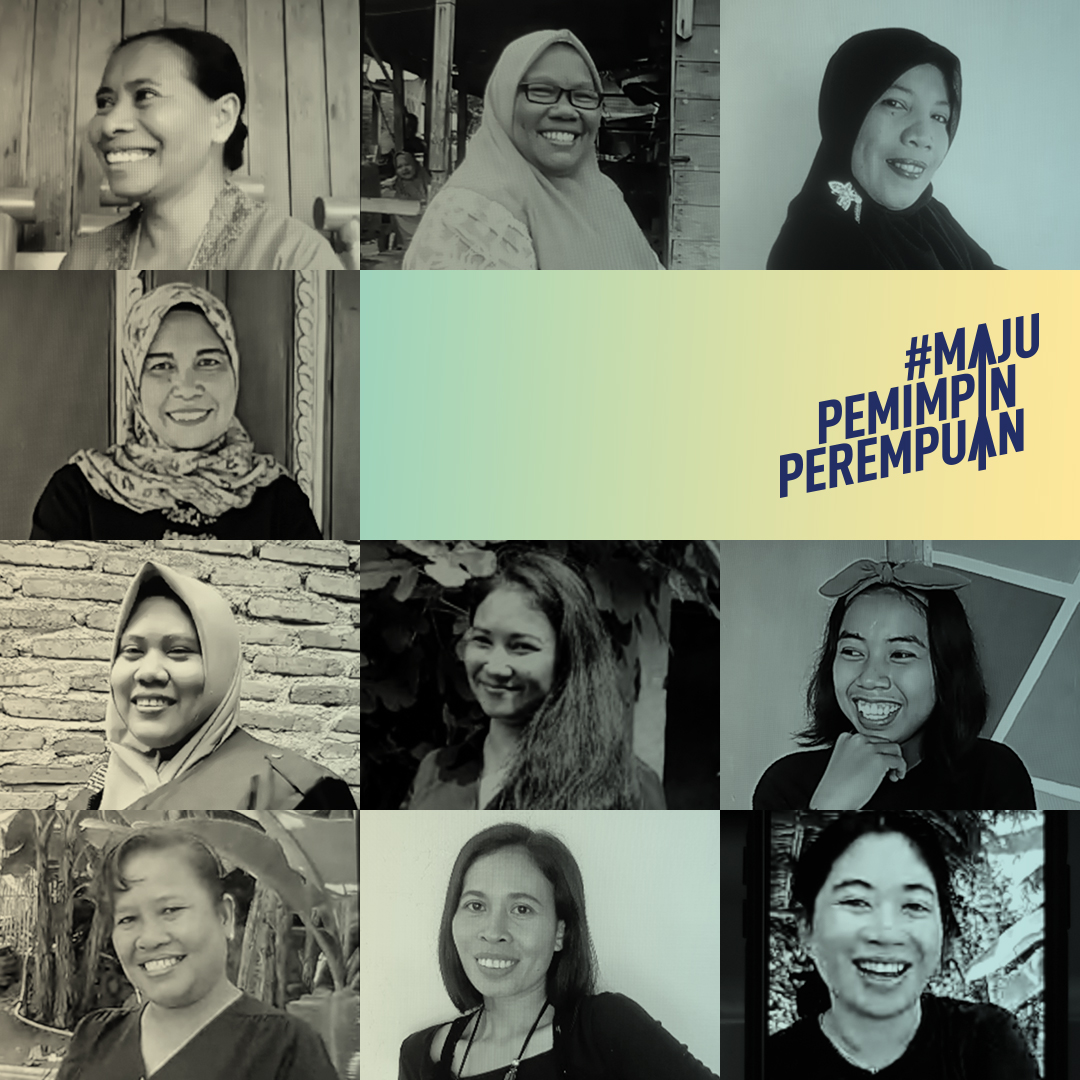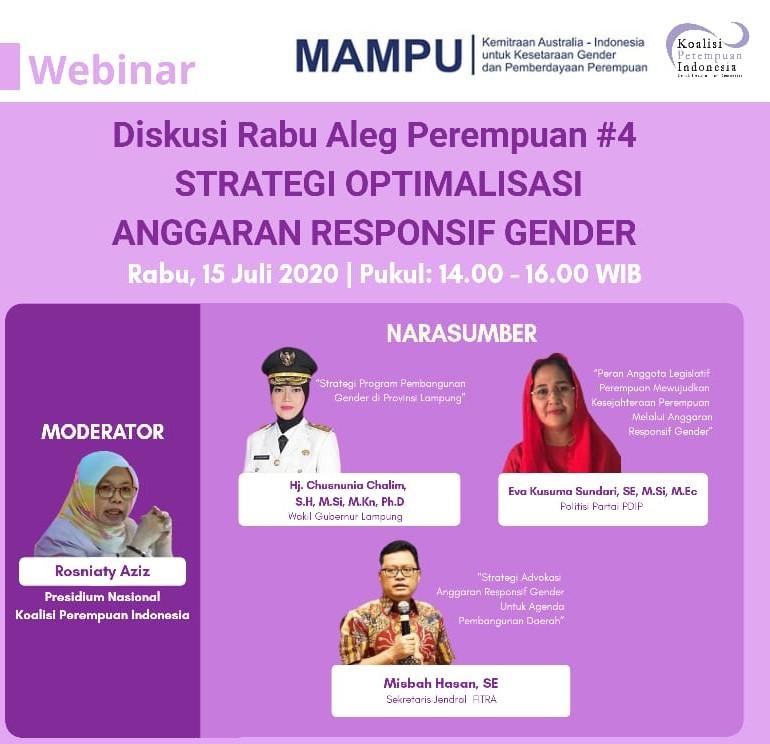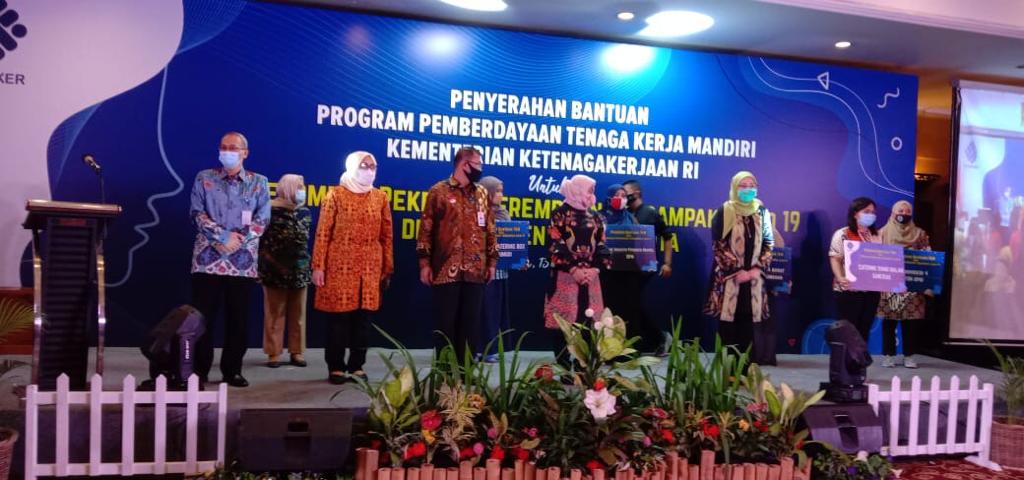Event
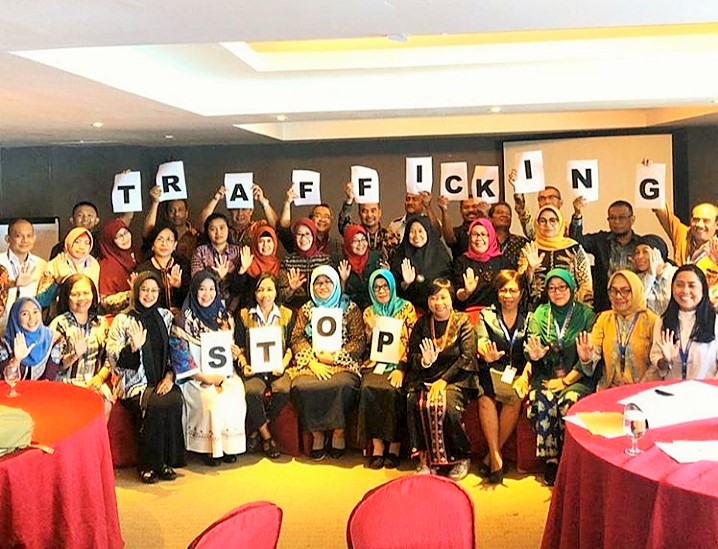
MAMPU Partners Receive an Award for their Contribution to Preventing and Handling Human Trafficking
28 November 2019Author: Amron Hamdi

The Women’s Empowerment and Child Protection Ministry (KPPPA) gave an award to Migrant Care, SAPA Institute, LBH APIK Bali, and Embun Pelangi — MAMPU partners that work to increase protections for migrant workers and combat violence against women. The award was to recognise the organisations’ contributions to preventing human trafficking. The Villages that Care about Migrant Workers (DESBUMI) Program — active in 37 villages across five provinces — was cited as one example of a good practice for protecting migrant workers and their families from human trafficking crimes.
The award was presented at the National Human Trafficking Prevention and Handling Task Force Coordination Meeting held on 14-17 October in Kupang City, East Nusa Tenggara. Around 300 representatives from KPPPA, the Coordinating Ministry for Human Development and Culture, the Women’s Empowerment, Social Affairs and Employment Agencies, the Prosecutors Office, and members of the Human Trafficking Task Force attended the meeting.
The Coordination Meeting produced several recommendations, including ones related to:
- Disseminating the guidelines on the formation and strengthening of Human Trafficking Task Forces;
- Integrating data management to include software, hardware and supporting infrastructure as well as staff to oversee, verify, and clear the data and create application-based services;
- Establishing multi-party handling of human trafficking cases that involves parties from villages, university campuses, the community, corporations, and cities;
- Compiling guidelines for assisting the recovery of human trafficking victims;
- Creating a policy to provide government compensation to victims of human trafficking;
- Mainstreaming human trafficking prevention and handling in programs implemented by the Home Affairs Ministry and Village Affairs Ministry, from the national to the village level;
- Creating inter-regional cooperation guidelines that cover workflow, division of tasks, and budgeting;
- Suggesting a revision to Law No.21/2017 regarding the Crime of Human Trafficking, to increase the status of the Task Force — mentioned in Article 68 — to become a ministerial-level National Anti-Human Trafficking Agency;
- Strengthening the structure, organisation, roles and functions of the Anti-Human Trafficking Task Force;
- Pushing for the involvement of corporations in the prevention and handling of human trafficking; and
- Creating a study regarding vulnerability to human trafficking based on home regions, transit regions, and destination regions.
Various government and non-government stakeholders, including civil society organisations, continue to engage in various efforts to prevent people trafficking. In East Nusa Tenggara, for example, a regional policy regarding a ‘Moratorium on the Deployment of Migrant Workers to the Middle East and a Single Channel Deployment Channel’ has been introduced as a pilot program to manage the deployment of migrant workers to Malaysia. Several other interventions, including providing information about safe migration, providing for direct recruitment through regional governments, and cooperating with companies in destination countries, have also been implemented. So far, Human Trafficking Task Forces have been formed in 244 regencies and cities in 32 provinces.




